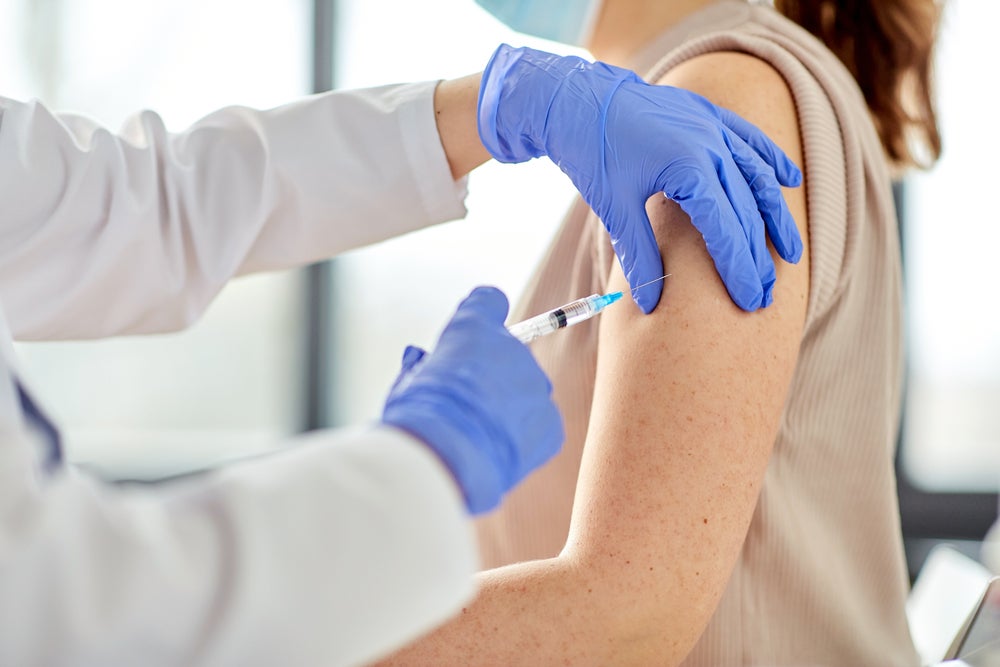Vaccinations against Covid-19 and influenza protect pregnant women by lowering their risk of experiencing adverse pregnancy outcomes.
Pregnancy weakens the immune system of the mother, thus making them a vulnerable group that is susceptible to experiencing more severe effects from Covid-19 or influenza infection.
In the UK, vaccinations against Covid-19 and influenza during pregnancy are highly recommended and included in routine immunisation.
The current epidemiology of Covid-19 and influenza vaccine uptake in pregnant women in England and Wales is unknown at a population-based level, as are the disparities in vaccine uptake between subgroups of pregnant women with differing baseline characteristics.
Gu and colleagues have undertaken an epidemiological assessment to address this gap in the literature, published in npj Vaccines (2024), with the goal of informing vaccine interventions in the UK and ultimately improving the uptake rate.
Data on vaccine uptake in pregnant women in England was obtained from the Oxford-Royal College of General Practitioners Research and Surveillance Centre and the Secure Anonymised Information Linkage Databank for Wales for the period of September 2020 to March 2022.

US Tariffs are shifting - will you react or anticipate?
Don’t let policy changes catch you off guard. Stay proactive with real-time data and expert analysis.
By GlobalDataOf the 178,690 pregnant women eligible for the influenza vaccine, only 41.8% had at least one dose; of the 133,300 eligible for the Covid-19 vaccine, 40.2% had at least one dose.
Among the 133,140 pregnant women eligible for both vaccines, only 20.5% received both vaccines.
Influenza vaccine uptake was highest during September and December of each year.
Similar patterns of disparity across baseline characteristics were seen across the influenza and Covid-19 cohorts.
Pregnant women of Black ethnicity had a 52% lower rate of receiving the Covid-19 vaccine and a 39% lower rate of receiving the influenza vaccine compared to those in the White ethnic group or those in the Asian ethnic groups.
Those of mixed and other ethnicities also had a lower vaccine uptake rate compared to White or Asian ethnic groups, though higher than pregnant women of Black ethnicity.
Socioeconomic status played a large and statistically significant role in vaccine uptake; vaccine uptake decreased with increased deprivation levels.
Pregnant women from the most deprived areas were 56% less likely to receive a Covid-19 vaccine and 42% less likely to receive an influenza vaccine than pregnant women in the most affluent group.
Pregnant women living in urban regions were more likely to receive either vaccine than those living in rural regions.
Some inconsistencies between the two vaccine cohorts were witnessed.
Pregnant women 40-49 years had the highest vaccine uptake in the Covid-19 cohort but the lowest chance of receiving the influenza vaccine; pregnant women 18-24 years had the lowest vaccine uptake in both cohorts.
Women with comorbidities had a higher chance of receiving the influenza vaccine compared to those with no comorbidities.
However, this was not observed in the Covid-19 cohort.
Continually encouraging the public to keep receiving the Covid-19 vaccination is important in kerbing the spread of infection and minimising adverse side effects in pregnant women.
Leading data and analytics company GlobalData‘s epidemiologists estimate that by the end of 2024, 52% of men and women of all ages in the UK will have had their second Covid-19 booster vaccine, and that number is expected to increase only marginally to 53% by the end of 2026.
Thus, there is significant room to improve vaccination rates.
A meaningful conclusion that can be drawn from this study is that vaccine interventions should focus on vaccine promotion and education in the groups with the lowest odds of receiving either or both of the vaccines.
Ethnicity, socioeconomic status, and rurality are influencing factors that affect the uptake of Covid-19 and influenza vaccines similarly.






